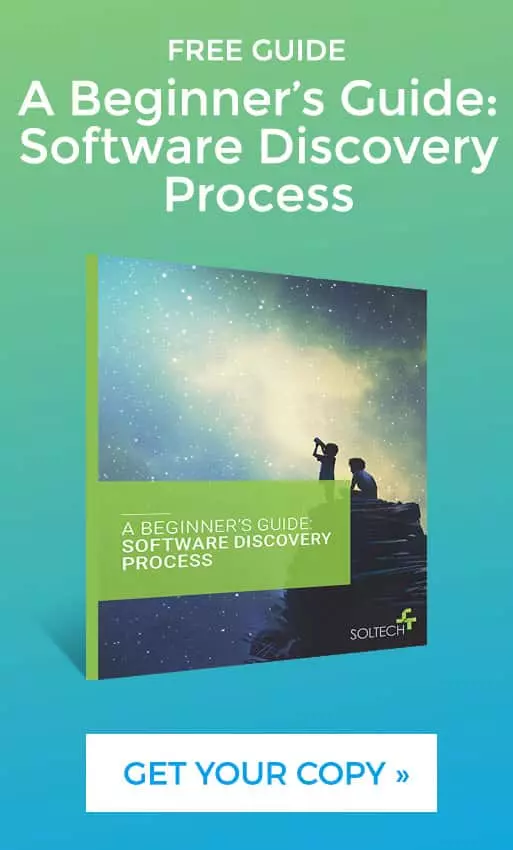
Should You Share The Ownership Of Your Software?
By Thayer Tate
We can’t tell you how often we hear horror stories from clients who come to us because their developer will not turn over the code to their software, website, and/or app. Unfortunately, they were not aware that some developers and development companies view whatever they built for the client, as their property. Worse yet, some clients have shared ownership in exchange for work performed.
Should you share ownership of your software? Let’s review how it works and what the challenges are. In this article, we will use the term shared ownership to refer to a business situation where you co-own software with your developer.
How Shared Ownership Works
Shared ownership is usually an agreement between the client and the developer for the client to pay a small upfront fee, and then give the developer ownership in the company and a profit share opportunity if and when the software makes money down the road.
This may sound like an unusual situation but because of the high cost of software, small businesses often do not have the cash flow to pay for the software development upfront. If they see the new software as a way of generating additional revenue down the road, co-owning the product with a revenue share model is a possible option to bridge this gap.
On the surface, this sounds like a great idea. You have cut back on your upfront costs and your developer now has a vested interest in making sure the software works well.

The Challenges Of Shared Ownership
There is certainly a chance that everything goes well and this arrangement works out for both parties, but quite often things do not go as planned. A shared ownership business model often magnifies project challenges and brings a host of new and unique issues to the table.
Consider the following real-world situations that have happened to some of our Software Rescue clients:
- Your developer has not delivered on the initial commitments (e.g. timeline, code completeness, code quality etc.) and you need to find a new developer. At this point, your developer refuses to release the source code of your app because you haven’t fully paid for it.
- Your developer has disappeared and stopped returning all of your calls. You’ve already spent a year working with them to get the software built but you have no recourse because it isn’t your software yet.
- Your developer is still working on your software but clearly, you are the lowest priority and they are servicing other “paying” clients as their top priority
- Your developer uses your software for other clients or to create a competing product with the mindset that you haven’t paid for the work so they need to find another way to get compensated
- The developer goes out of business in the middle of the project and all work on the product stops
- Your developer disagrees with your product vision and only agrees to finish the application if you implement it in a way that they agree with
- Your developer implements the software using a technology they are most comfortable with but that others are not willing or able to support in the future
Customer testimonial from one of our past clients who lost control of their software product.
None of the above issues stem from technical problems but rather problematic business relationships. But even more importantly, no matter how great your next technical team is, no one can help you if you don’t have full access and ownership of your application source code.
Conclusion
If you are considering alternative ways to fund your software development project, look at protecting yourself. No matter the payment arrangement, make sure that you secure complete access and ownership of your source code at every step of the way.
If the developer that you are working with is not able to do this for you, it is important enough that you walk away and find someone else who is.
For more information regarding this topic, you can read our blog about why you need to own your source code.
Thayer Tate
Chief Technology Officer Thayer is the Chief Technology Officer at SOLTECH, bringing over 20 years of experience in technology and consulting to his role. Throughout his career, Thayer has focused on successfully implementing and delivering projects of all sizes. He began his journey in the technology industry with renowned consulting firms like PricewaterhouseCoopers and IBM, where he gained valuable insights into handling complex challenges faced by large enterprises and developed detailed implementation methodologies.
Thayer is the Chief Technology Officer at SOLTECH, bringing over 20 years of experience in technology and consulting to his role. Throughout his career, Thayer has focused on successfully implementing and delivering projects of all sizes. He began his journey in the technology industry with renowned consulting firms like PricewaterhouseCoopers and IBM, where he gained valuable insights into handling complex challenges faced by large enterprises and developed detailed implementation methodologies.
Thayer’s expertise expanded as he obtained his Project Management Professional (PMP) certification and joined SOLTECH, an Atlanta-based technology firm specializing in custom software development, Technology Consulting and IT staffing. During his tenure at SOLTECH, Thayer honed his skills by managing the design and development of numerous projects, eventually assuming executive responsibility for leading the technical direction of SOLTECH’s software solutions.
As a thought leader and industry expert, Thayer writes articles on technology strategy and planning, software development, project implementation, and technology integration. Thayer’s aim is to empower readers with practical insights and actionable advice based on his extensive experience.



